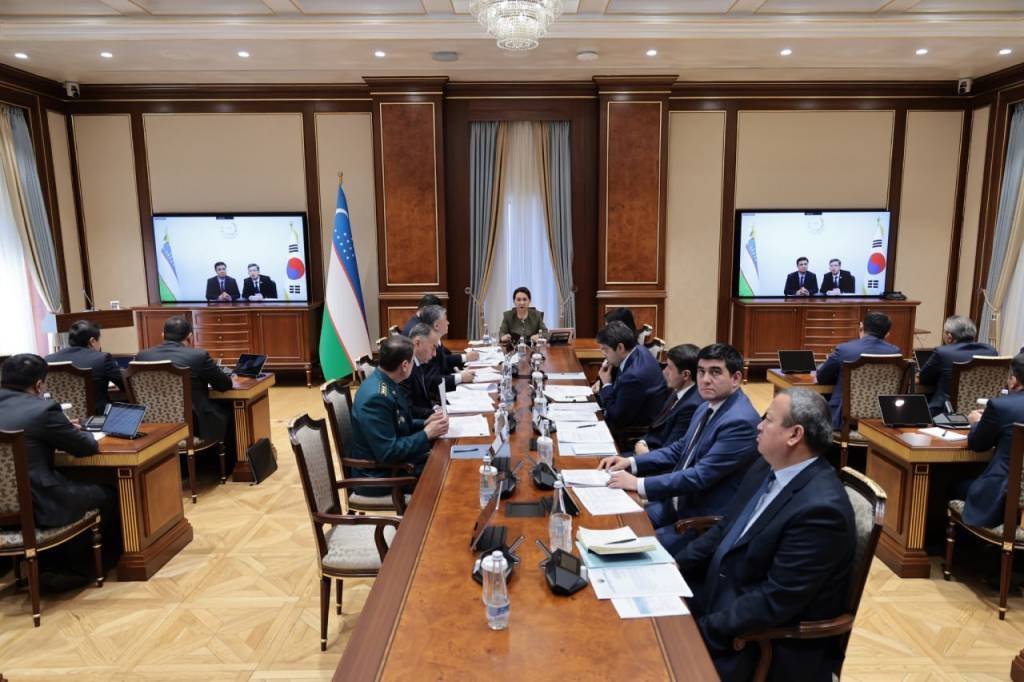

Practical action plans were approved by the President’s resolution of December 28, 2021, “On measures to further deepen the special strategic partnership between the Republic of Uzbekistan and the Republic of Korea”.
At the next meeting of the Oliy Majlis Senate’s Commission on Cooperation with the National Assembly of the Republic of Korea, the execution of “roadmaps” to ensure the implementation of high-level agreements with the Republic of Korea has been discussed.
Uza. At the meeting led by the Chairperson of the Senate, T. Narbayeva, it was noted that several works were carried out within the framework of specific agreements reached at the highest level with the Republic of Korea.
This year, the $7 million “Expansion of optical fiber production” project has been launched in Jizzakh region. As a result, it is now possible to produce 85,000 kilometers of optical fiber cable products per year.
In Fergana region, the $7 million “Vocational Education Center” has been fully implemented. Based on the address list, 223 unemployed people, mostly young people and women, are being trained. Besides this, a similar project has been launched in Khorezm region.
The Government of the Republic of Korea has approved allocating 74 million dollars to the project “Equipping regional medical facilities with medical equipment”. As part of the project, 8,455 medical devices of 35 types will be brought from the Republic of Korea.
In addition, a “Green recovery” investment project worth 5.6 million dollars is being implemented in the Republic of Karakalpakstan to eliminate the consequences of the Aral Sea crisis. The representative office of the Global Green Growth Institute (Korea) has been opened in Uzbekistan. The Institute has started financing the green recovery of the Aral Sea region.
Cooperation between Uzbekistan and the Republic of Korea in the political, trade-economic, and cultural-humanitarian spheres is developing steadily.
At the event, attention was paid to specific tasks outlined in the roadmaps being performed with delay, and the reasons were analyzed. In particular, detailed proposals were made, and deadlines were set for increasing the responsibility of the heads of ministries and agencies who were irresponsible in implementing “roadmaps”, providing timely and high-quality execution of tasks, and eliminating shortcomings.